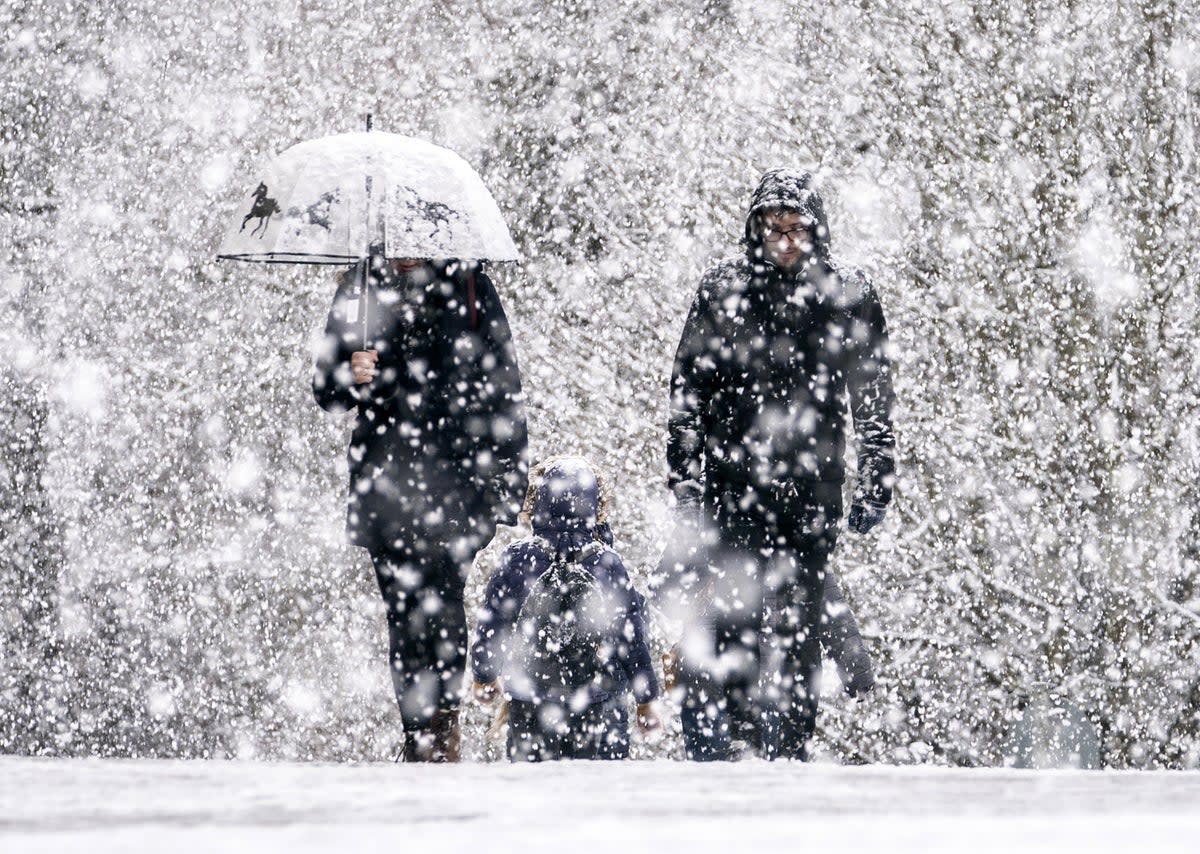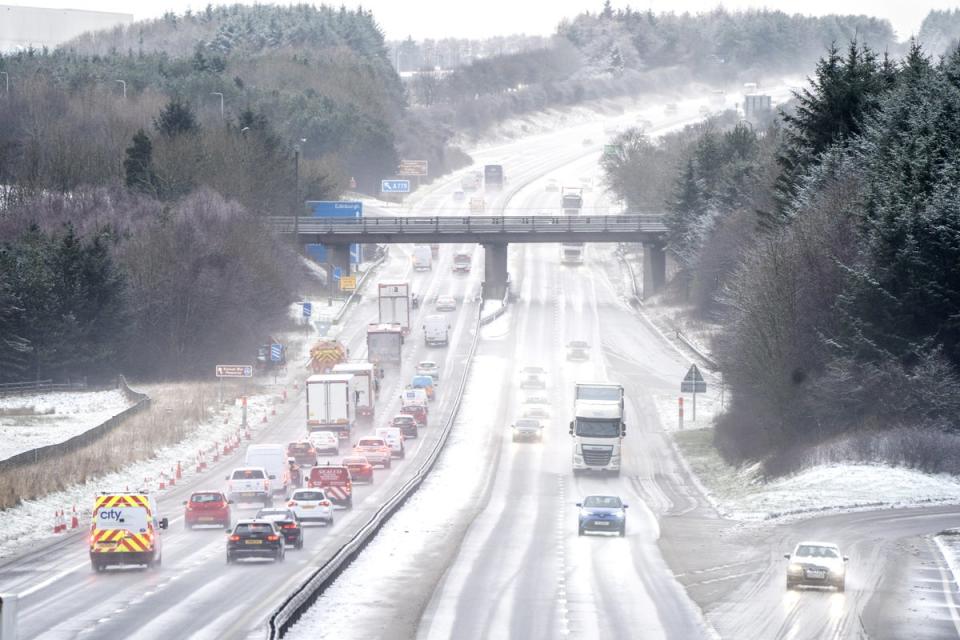UK weather: Severe cold alert issued by Met Office as temperatures set to plunge as low as -9C

The Met Office has issued a severe cold weather alert for England, as it warned plummeting temperatures later this week could increase health risks to vulnerable people and disrupt deliveries.
The level three, or amber, cold weather alert was issued on Monday morning and warns of severe conditions in England between 6pm on Wednesday and 9am on Monday 12 December.
The alert requires social and healthcare services to take action to protect high-risk groups.
It comes as temperatures across Scotland are expected to plummet to sub-zero temperatures later this week, as the UK braces itself for the coldest night of the year, forecasters have warned.
The Met Office said that parts of rural Scotland will be hit by bitterly cold temperatures as the mercury plunges to –9C in some areas by Friday night.
Snow showers across northern Scotland later this week will help temperatures drop in areas such as the Highlands, said the forecaster.
The southwest of England is also set to experience frosty weather, as temperatures dip to –5C in Holsworthy and Moretonhampstead on Thursday.
Glasgow can expect temperatures of –3 by Thursday, while Manchester will experience the same frosty weather by Friday. London will also see temperatures drop to –3C by Thursday.

The Met Office has advised people to try and maintain indoor temperatures of at least 18C, stating that this is particularly relevant for those who are not mobile, have a long-term illness or are 65 or over.
It has also asked people to “look out for friends and family who may be vulnerable to the cold”, ensuring they have access to warm food and drinks and are managing to heat their homes adequately.
The Met Office’s cold weather alert system operates in England from 1 November to 31 March, every year, in association with the UK Health Security Agency (UKHSA).
The system comprises five levels of response based on cold weather thresholds which are designed to trigger an alert when severe cold weather is likely to significantly affect people’s health.

The Met Office said: “On Tuesday, showers and rain are expected in the south, southeast and north of the UK. Snow and heavy showers are then possible across high ground. Moderate winds are expected in most areas, locally strong in the north and perhaps south of the UK.
“Occasional showers and moderate winds are expected throughout the rest of the period, especially around northern coasts, with more persistent rainfall likely in southern regions.
“Snow and snow showers are expected at times across high-ground areas. Temperatures are likely to be below normal through the period, possibly feeling rather cold.”
Despite the fall in temperatures this week, 2022 has been the UK’s warmest year.

According to Met Office statistics, this December would need to reach near-record cold weather to avoid 2022 being the warmest year on record for the UK.
Provisional figures from the forecaster show that Autumn 2022 (September, October, and November) had an average mean temperature of 11.1C, making it the third warmest on record.
Mike Kendon of the National Climate Information Centre said: “Although it’s too early to guarantee that 2022 will be the UK’s warmest year, the first 11 months have set up the distinct possibility of a record-breaking warm year, with only a very cold December able to potentially influence where the year will eventually sit in the record books.”
“All of the top 10 warmest years on record for the UK have occurred since 2002; a clear indicator of our warming climate.
“Human-induced climate change has increased the likelihood of extreme heat as we saw in July this year, but this year has also seen persistent warmth resulting in the year overall challenging the record previously set in 2014.”
Wintry showers are also likely to affect some coasts, with the Met Office forecasting they may push into some inland areas at times, bringing a risk of icy patches.
The RAC has advised motorists to check their vehicles are “winter ready”, with properly inflated tyres that have good tread.
Rod Dennis, RAC spokesperson, said: “With temperatures plummeting this week, many drivers might be taken aback by the cold after an exceptionally mild autumn.
“Drivers with older batteries in their cars might also wish to give their vehicle a 20-minute drive before colder conditions arrive to ensure the battery can cope with sub-zero temperatures.”

 Yahoo News
Yahoo News 
